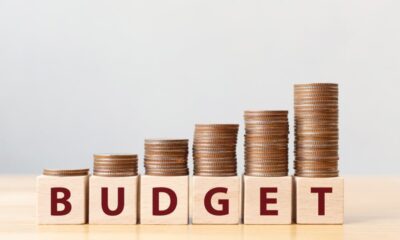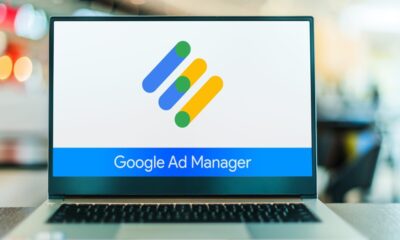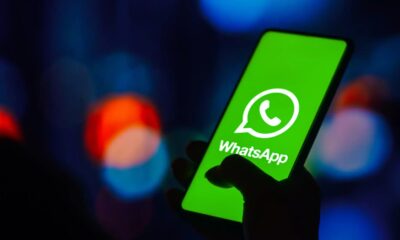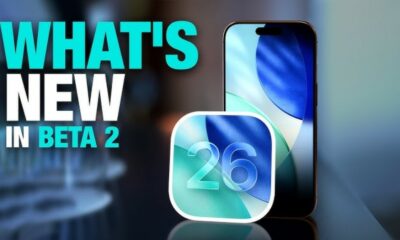Business
Here’s How To Use Payment Applications Without Getting Caught off Guard

Legislators and authorities are paying close attention to payment applications as their use is rapidly increasing.
Sending money to friends and relatives instantaneously just requires a tap. They are also used by customers to make speedy internet purchases.
According to a recent NerdWallet survey, 80% of Americans use mobile payment apps because of their ease of use. Furthermore, half of the participants said that they utilize these applications on a weekly basis.
The Consumer Financial Protection Bureau anticipated that in 2022, there will be around $893 billion in transactions across all payment app service providers.
According to that agency’s forecasts, between now and 2028, tap-to-pay transactions from digital wallets would increase by 150%.
Concerns over customers’ financial security are also becoming more prevalent.
According to Amy Zirkle, the senior program manager for payments at the CFPB, the agency is concentrating on “erecting guardrails and some requirements and obligations for non-traditional players who are offering services very similar to a bank-based product.”
Up until then, there might be further regulation of mobile payment apps in the works.
A CFPB rule that would force digital wallets and payments to adhere to federal money transfer, privacy, and other consumer protection laws that they are not now obligated to obey is being supported by Democratic senators on Capitol Hill.
Legislators are also requesting that payment app providers make it simpler for users to report fraud and to make clear their compensation policies in the event that users fall victim to scams.
During a hearing earlier this month on banking scams, Sen. Sherrod Brown, D-Ohio, chairman of the Senate Banking Committee, stated, “People lose their money because payment apps and banks don’t put enough measures in place to protect their customers.”
Nevertheless, it takes time to implement new regulations. Experts advise consumers to educate themselves on the workings of these apps, potential costs, and the dangers of keeping money in a mobile payment app while waiting.
How to use payment applications Payment applications such as Cash App, PayPal, and Venmo allow users to send money to friends and family, make payments online or in person, and store payment information.
In the meanwhile, users of the well-known peer-to-peer digital payment tool Zelle can transfer money straight from their bank account to friends and relatives. The program transmits money directly and has a direct connection to a bank or credit union account.
Zelle does not permit users to keep balances within the app, in contrast to Cash App, PayPal, and Venmo.
A digital wallet, like Google Wallet or Apple Wallet, can be used as a place to store loyalty cards for hotels, airlines, and other retailers as well as a payment app utilizing Apple Pay or Google Pay.
App Fees For Payments Might Add Up
Payment apps that employ Cash App, PayPal, or Venmo may charge a fee for the ease of rapid money transfers or integrating credit cards with the app.
Sending money using Cash App is free of charge if it is processed in one to three business days; nevertheless, there are fees associated with instant payments that range from 0.5% to 1.75%. For instant transactions, PayPal and its subsidiary Venmo impose a fee of up to $25 or 1.75% of the transfer amount.
For an instant transfer, Zelle does not impose an additional cost. Nonetheless, Zelle advises making sure there are no costs associated with Zelle transactions by checking with your bank or credit union.
According to a NerdWallet poll, over 33% of users of mobile payment applications link their apps to a credit card, and 24% typically pay the cost to get quick transfers from the payment app to their bank account. These costs can mount up rapidly.
Most Payment Apps Put The Money They Hold At Risk
The majority of users of payment apps do not move their money to a bank account; instead, they maintain their money within the apps. It’s dangerous, experts say.
“Do not treat this like a bank because it doesn’t give you the same level of protection for your funds,” CFPB’s Zirkle said.
The Federal Deposit Insurance Corp., which offers protection up to $250,000 in the event that a federally insured bank or credit union fails, does not insure the money you retain in most payment applications.
According to the CFPB, using money saved on payment apps for that purpose can be problematic because it is typically not insured.
The CFPB also cautions that “your money is likely lost or tied up in a long bankruptcy process” if the app doesn’t work.
Experts advise linking payment apps to bank accounts and transferring money from the app as soon as you receive it to help safeguard funds in the app.
Avoid Falling For Payment App Scams
Since payment apps aren’t as strictly controlled as debit and credit cards, if a fraudster manages to acquire access to your account, you could still be responsible for any illicit transactions.
“You’ve authorized that transaction if you get tricked and send money to a thief,” stated Scott Talbott, executive vice president of the Electronic Transactions Association, which speaks for the payments sector. “The industry’s main goal is to educate consumers so they don’t fall for scams in the first place.”
Consumers are advised by the Federal Trade Commission to never divulge their access codes, safeguard their accounts using multifactor authentication or a PIN, and confirm the recipient’s details before sending money.
-

 Sports3 weeks ago
Sports3 weeks agoFIFA Club World Cup 2025: Complete List of Qualified Teams and Groups
-

 Sports2 weeks ago
Sports2 weeks agoAl Ahly vs Inter Miami, 2025 FIFA Club World Cup – Preview, Prediction, Predicted Lineups and How to Watch
-
Health1 week ago
Back to Roots: Ayurveda Offers Natural Cure for Common Hair Woes
-
World4 weeks ago
Omar Benjelloun: Strategic Architect Behind Major Financial Deals in the MENA Region
-

 Sports3 weeks ago
Sports3 weeks agoFIVB Men’s Volleyball Nations League 2025: Full Schedule, Fixtures, Format, Teams, Pools and How to Watch
-

 Tech1 week ago
Tech1 week agoFrom Soil to Silicon: The Rise of Agriculture AI and Drone Innovations in 2025
-

 Startup2 weeks ago
Startup2 weeks agoHow Instagram Is Driving Global Social Media Marketing Trends
-

 Science4 weeks ago
Science4 weeks agoEverything You Need to Know about Skywatching in June 2025: Full Moon, New Moon, Arietid Meteors, and Planetary Marvels

























